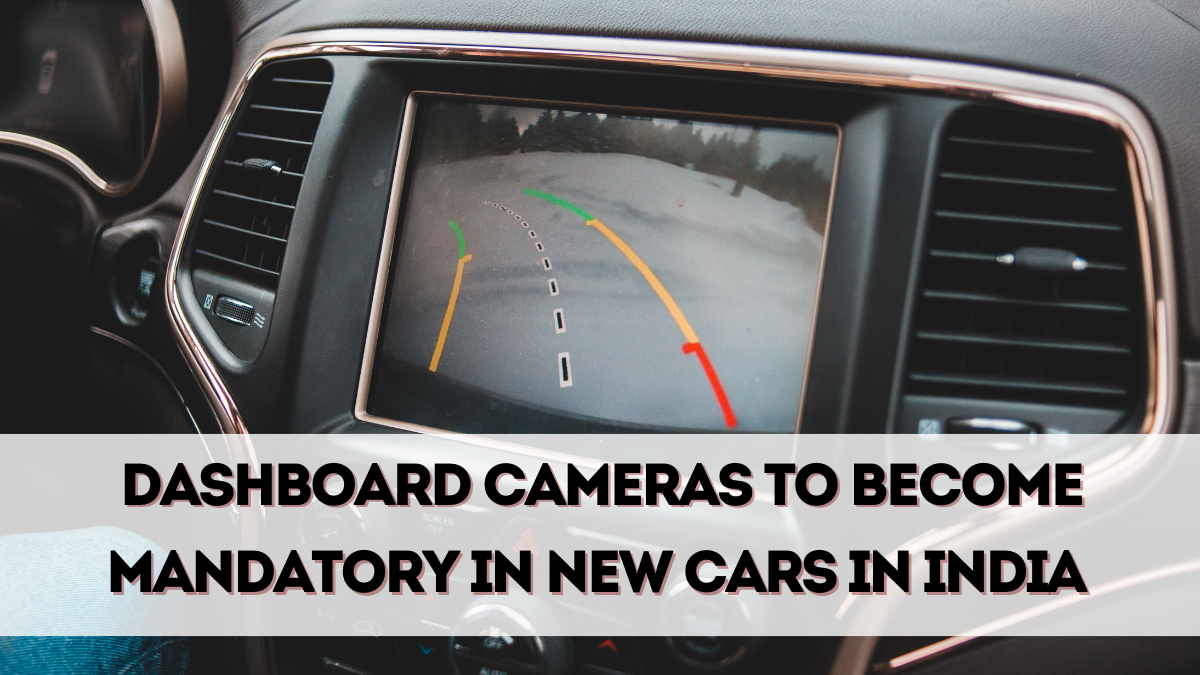The Indian government is preparing to introduce a new safety regulation that will require dashboard cameras in all new cars sold from December 2025.
The rule aims to improve road safety, accident investigation, and insurance claims through the use of dashcam footage.

Why Dashcams Are Becoming Mandatory
Dashcams are small cameras mounted inside cars to record real-time road activity.
Globally, they have proven effective in:
-
Recording accidents for legal and insurance use.
-
Monitoring driver behavior and ensuring accountability.
-
Preventing fraud, such as staged accidents and false claims.
With road accidents a major concern in India, dashcams are seen as a game-changing safety tool.
Key Features of the New Rule
The car dashboard camera mandate India includes several important requirements.
-
Mandatory Installation: All new cars must have a dashcam fitted by the manufacturer.
-
Front and Rear Recording: Dual-camera systems may be recommended for better coverage.
-
Data Storage: Devices must store at least 24 hours of footage.
-
Tamper-Proof Design: Cameras must be secure and difficult to disable.
-
Integration with Vehicle Systems: Some models may connect to airbags and accident sensors.
These features will ensure high-quality evidence in case of accidents.
Benefits for Car Owners
For vehicle owners, dashcams bring multiple advantages.
-
Stronger Insurance Claims: Clear evidence helps settle disputes quickly.
-
Legal Protection: Footage protects drivers from false allegations.
-
Improved Driving Habits: Knowing they are recorded encourages safer driving.
-
Resale Value: Cars with built-in dashcams may fetch better resale prices.
This makes the upcoming rule beneficial beyond compliance.
Benefits for Authorities
Authorities will also gain from the rollout.
-
Accident Investigations: Police can rely on dashcam footage to identify causes.
-
Traffic Rule Enforcement: Video evidence will strengthen challans and penalties.
-
Road Safety Research: Footage provides data for traffic planning and safety measures.
Together, these benefits improve India’s road safety ecosystem.
Industry and Automaker Response
Car manufacturers are already preparing for the change.
-
Entry-Level Cars: Basic dashcams may be included without raising costs significantly.
-
Mid and Premium Cars: Advanced AI-powered dashcams with parking mode and night vision may be standard.
-
Aftermarket Options: Owners of older cars can buy government-approved dashcams separately.
This ensures that all buyers, across price segments, can access the technology.
Challenges in Implementation
While the rule is progressive, challenges exist.
-
Cost Concerns: Adding dashcams may increase vehicle prices slightly.
-
Privacy Issues: Questions remain on how recorded data will be stored and used.
-
Enforcement: Authorities must ensure compliance across millions of vehicles.
-
Awareness: Many drivers are still unfamiliar with dashcam benefits.
The government plans to issue guidelines for manufacturers, insurers, and consumers to address these concerns.
Expected Impact on Road Safety
The regulation could have a transformative effect on Indian roads.
-
Fewer Hit-and-Run Cases: Recorded footage helps track offenders.
-
Lower Accident Fraud: Reduces staged accidents and false claims.
-
Improved Driver Accountability: Drivers become more cautious knowing they are recorded.
-
Enhanced Public Confidence: Citizens trust traffic enforcement when backed by video evidence.
This supports India’s goal of reducing road fatalities under the Vision Zero strategy.
Future of In-Car Safety Tech
The dashcam mandate may be just the beginning of a broader safety upgrade.
-
AI Dashcams: Future models could detect drowsy driving or lane departures.
-
Cloud Storage: Automatic uploads for better security.
-
Integration with Emergency Services: Automatic alerts in case of crashes.
-
Global Standards: Indian vehicles could align with international safety benchmarks.
This marks a new era of technology-driven road safety in India.
FAQs
When will dashboard cameras become mandatory in India?
From December 2025, all new cars must include factory-installed dashcams.
Will existing cars also need to install dashcams?
The rule applies to new cars, but older car owners are encouraged to use aftermarket devices.
How will dashcams improve insurance claims?
They provide clear accident footage, reducing disputes and speeding up settlements.
Will this rule increase car prices?
Yes, slightly, but the long-term benefits outweigh the additional cost.
Are dashcams legal in India?
Yes, dashcams are legal and now becoming a mandatory safety feature.
Click here to know more.
